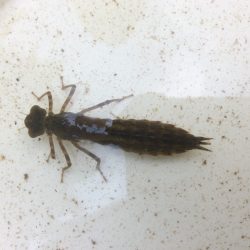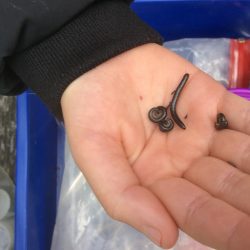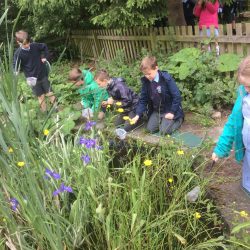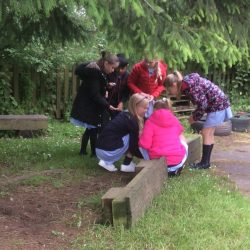Category: Year 4
Bee Good To The Earth
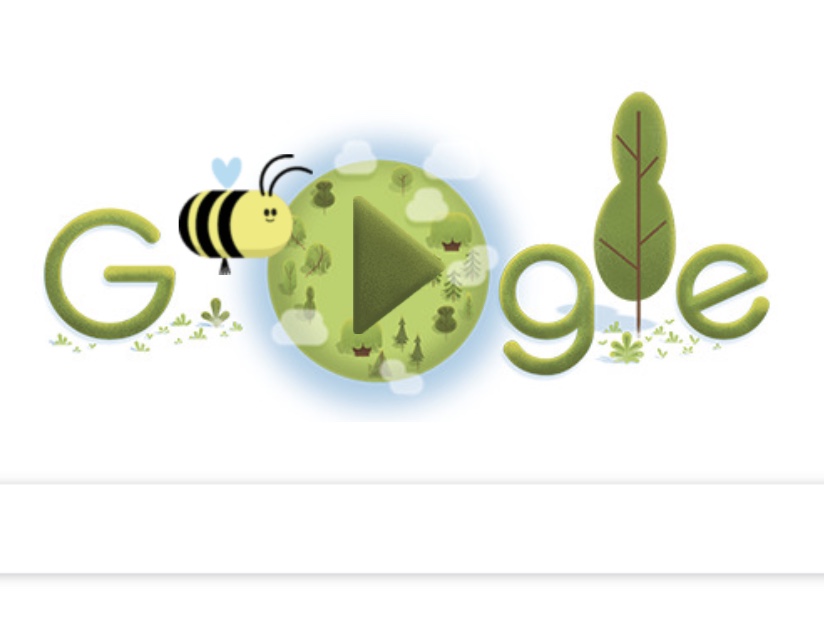
Today is Earth Day which has been celebrated every April 22nd since 1970. The aim of Earth Day is to raise awareness of the damage done to the environment.
You might like to try Google’s doodle for the day – a relaxing game where you control a bee visiting flowers and which will teach you lots of things about how important bees are: google.co.uk
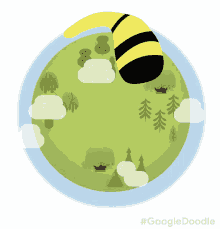
Can I Identify Different Birds?
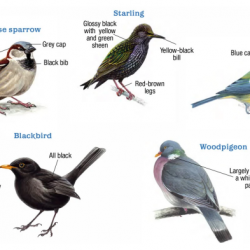
Why not find out about some of the wildlife around where you live by learning the names of the birds that you can see from your own home? There is more information on what to do in the video below or read the text at the bottom…
If the video does not play in your browser, click here.
Objective: To be able to recognise and name at least six different British birds.
Quick bird spotting guides: Sheet 1 Sheet 2
How: Spend half an hour a day for a week quietly recording the birds you can see from a window. Putting out some food can help if you have any but avoid bread at this time of year as it is not good for chicks.
Can you find out which is the most common bird to visit your garden?
Challenge: Can you think of an investigation to carry out as you bird watch? Perhaps you think different birds will come at different times of the day – how could you find out? Or maybe you could investigate the birds’ favourite food? (Try sorting out some mixed bird seed).
Alvechurch United U9’s Lockdown Message

Look carefully and see if you can spot some of our Year 3 and Year 4 pupils 🙂 They are sharing an important message – stay home, protect the NHS and save lives in a very unique way.
Coronavirus – A Book for Children
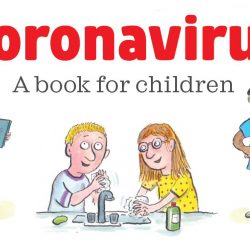
Axel Scheffler has illustrated a digital book for primary school age children, free for anyone to read on screen or print out, about the coronavirus and the measures taken to control it. Published by Nosy Crow, and written by staff within the company, the book has had expert input: Professor Graham Medley of the London School of Hygiene & Tropical Medicine acted as a consultant, and the company also had advice from two head teachers and a child psychologist.
The book answers key questions in simple language appropriate for 5 to 9 year olds:
• What is the coronavirus?
• How do you catch the coronavirus?
• What happens if you catch the coronavirus?
• Why are people worried about catching the coronavirus?
• Is there a cure for the coronavirus?
• Why are some places we normally go to closed?
• What can I do to help?
• What’s going to happen next?
We want to make sure that this book is accessible to every child and family and so the book is offered totally free of charge to anyone who wants to read it. However, we have suggested, at the back of the book, that families might make a donation to help our health service if they find the book useful: https://www.nhscharitiestogether.co.uk/.
Kate Wilson, Managing Director of Nosy Crow, said:
“We were very aware that many parents and carers are struggling to explain the current extraordinary situation to children, many of whom are frightened and confused. We thought that the best thing we could do would be to use our skills to produce a free book to explain and, where possible, reassure children. We asked Axel, whose work is so familiar and so loved, to illustrate it. He was happy to do it, and did it extraordinarily quickly. Meanwhile, having heard Professor Medley interviewed by the BBC, we looked him up and wrote to him, and despite his huge workload, he reviewed the book over a weekend, and we were able to incorporate his suggestions, together with those of two head teachers and a child psychologist, into the final version of the book. We hope it helps answer difficult questions in difficult times.”
Axel Scheffler, illustrator of The Gruffalo, said:
“I asked myself what I could do as an children’s illustrator to inform, as well as entertain, my readers here and abroad. So I was glad when my publisher, Nosy Crow, asked me to illustrate this question-and-answer book about the coronavirus. I think it is extremely important for children and families to have access to good and reliable information in this unprecedented crisis, and I hope that the popularity of the books I’ve done with Julia Donaldson will ensure that this digital book will reach many children who are now slightly older, but might still remember our picture books.”
Professor Graham Medley, Professor of Infectious Disease Modelling at the London School of Hygiene & Tropical Medicine, said:
“This pandemic is changing children’s lives across the globe and will have a lasting impact on us all. Helping children understand what is going on is an important step in helping them cope and making them part of the story – this is something that we are all going through, not something being done to them. This book puts children IN the picture rather just watching it happen, and in a way that makes the scary parts easier to cope with.”
You can download a copy of the book here (or, if you have trouble with that link, here) – or watch Mrs Williams read it below:
The Great Easter Bake Off
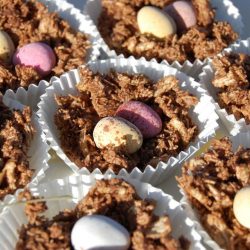
Pavement Art to Try
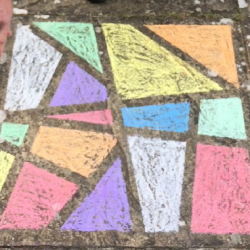
Mrs Bowen brings you a simple art project to try at home. If the picture doesn’t show in the video, download the file here.
Live Science Lesson – 31 March
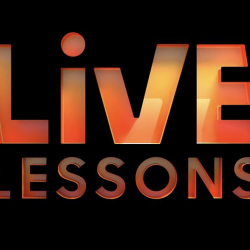
Hi everyone
Next week I’m going to attempt a live science lesson for KS1 and Year 3/4 – other years may follow in later weeks if successful. I’m going to keep this lesson fairly simple as it will be a test of the technology as much as anything. I ask that a parent/carer remains around to deal with any technology issues from your end and also to offer hands on support to your child. More information about setting up the software is below. I’ve no idea how many will turn up for the lesson but there is a limit of 100 and roughly 120 children in each of KS1 and LKS2 so apologies if you end up being number 101 – if you have siblings in both those groups both sessions will be the same so take a pick as to which they want to join in with.
– Dr Fishwick
LO: How does sound travel?
LO: Set up and carry out a simple investigation.Time/location:
Y1/2, Tuesday 31/3/20, 1pm, https://zoom.us/j/8168811198 access code 816 881 1198
Y3/4, Tuesday 31/3/20, 2pm, https://zoom.us/j/8168811198 access code 816 881 1198
You will need:
– Some coat hangers made from different materials (eg plastic, metal or wood) or smallish kitchen objects (eg sieve, mug) that you can tie string to
– String (you won’t need more than 1m, try a shoelace if stuck)
– A metal spoon

I’d advise setting up Zoom in advance. If you go to the lesson link above it will provide instructions on how to install the app (Apple and Android supported) or PC software. I’ve only used it on an iPad. Once installed and you’ve entered the access code it will probably say I’m not there or words to that effect. You can choose a display name each time you start (tends to default to your device name) – please use child’s first names only. During installation give permission to access your mic, camera, etc, if asked.
The image above shows the basic controls as they are appear on an iPad, they are arranged slightly different across platforms. Tapping on the screen brings the controls up.
Your camera does not need to be on (so don’t worry about tidying the house!) in fact the software will run much smoother if only my camera is on – use the Stop Video button to turn yours off.
Online Resources to Support Home Learning

Dear Parents and Carers,
Over the last few days, we have come across lots of online resources that are available to support children’s learning at home during the unprecedented times. This list is by no means exhaustive, nor are we promoting anything in particular, but we thought we’d share some of them with you. All children have different learning styles and interests – maybe something below will click! We will also update our learning packs on the class pages as time goes on.
With very best wishes from the staff of Lickey Hills PSN.
https://www.themathsfactor.com/ THIS IS GREAT!! Carol Vordermann is offering free access to her great website for maths offering games, challenges and daily lessons to support learning. There are motivational medals to earn too… Also lots of fun times tables games at https://www.topmarks.co.uk/maths-games/7-11-years/times-tables . Finally – great online, live lessons and follow up activities from Gareth Metcalf at http://www.iseemaths.com/home-lessons/
https://home.oxfordowl.co.uk/ – Fantastic resources and games for reading, writing, spelling and maths.
Some lovely reading opportunities to share at https://www.storylineonline.net/
https://www.literacyshed.com/home.html Go to The Literacy Shed for some great ideas for story writing. The Literacy Trust have developed a fantastic portal of resources for families – go to https://literacytrust.org.uk/family-zone/ . Also there’s a list of virtual author activities at https://www.weareteachers.com/virtual-author-activities/
Joe Wicks – The Body Coach is running a daily workout, Monday – Friday at 9am. https://www.thebodycoach.com/blog/pe-with-joe-1254.html?fbclid=IwAR13SHNgsUZEGLVRZYjbFzTf8PDAJvD4I8BxOASuWkVmjSNI6fsKHP1vs40
https://www.bbc.co.uk/bitesize/subjects/zhyb4wx (KS1) and https://www.bbc.co.uk/bitesize/subjects/zxsvr82 (KS2) to practise your Spanish skills
https://www.theguardian.com/travel/2020/mar/23/10-of-the-worlds-best-virtual-museum-and-art-gallery-tours The Guardian published 10 of the World’s best virtual museum and art gallery tours – but this list is not exhaustive!! The Tate Modern, for example, will give you some ideas for really crazy art to try!!
https://kids.sandiegozoo.org/ Learn about all the animals around the world!
https://www.natgeokids.com/uk/ for geography and science ideas and fascinating facts. https://bpes.bp.com/the-emperors-new-clothes Some great science activities on BP’s website for Primary children – including this fun activity to help the Emperor find the right clothes for each season!
More science fun at https://www.bbc.co.uk/bitesize/collections/primary-games/1
Corona Rap Homework
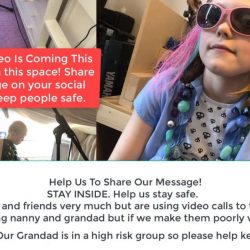
Listen to the fantastic Corona Rap homework made by some of our pupils from Years 2, 3 and 4 below…
Invertebrate Safari
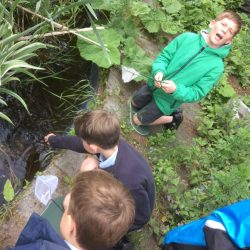
Year 4 set out to find and identify invertebrates in the wildlife garden and pond this week. We very excited to find a dragonfly larva – a good sign of water quality and we can’t wait to see the dragonflies flying around hunting.
